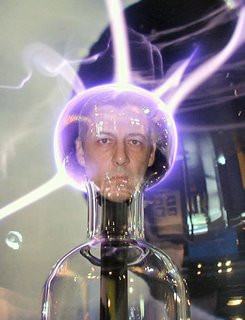"I'm basically a good person, and I try to keep the 10 commandments."Throughout all history mankind has had an ingrained desire to relate to God.
Cain and Abel were the first two people born. They felt that desire, so they performed the first acts of "religion." (Genesis 4)
Religion is the attempt to worship God by performing some act.* Cain and Abel made offerings. Many older religions revolved around various offerings or sacrifices to the many "gods." These offerings were made for many reasons- to appease the gods, to thank the gods, to make them happy, to bribe them into helping the people, or to meet the gods' desires for "victims."
After God gave the Law to the Jews, religion became more and more the practice of keeping regulations of lifestyle. The religious scholars began interpreting the meaning of the laws and making regulations to insure that none of the laws were broken. In time those regulations grew to far outnumber the law (called "the Torah"**) given by Moses in the first five books of the Bible.
These rituals and regulations became the primary focus of the Jewish religion. This practice has been repeated in some Christian churches who have added rituals and regulations to the truth of the Bible and create the Christian "religion." Others have taken the Bible and mixed it with the pagan ideas of God and life to create new religions.
That is what the main thrust of religion remains to this day. People "do" things in order to approach God; or to please God; to become "like" God; some even supposedly to "become God."
Those people who believe in "the Judgment Day" do the things they think will weigh in their favor when God judges them, weighing the good and the bad to see whether they should go to heaven or to hell.
It was through the Bible, and the Law given to the Jews that the one true God explained the reason for sacrifice. That reason is Sin. Sin is the wrong that people do. The wrong which separates them from a pure and holy God. God provided a means for removing that sin. That means of removal was the sacrificial substitution of an innocent life for the life of the sinner.
Those who are raised in a "christian" cultural environment are indoctrinated into the concept of a Judgment of all people by God when they die. Religion says that the decision made for either heaven or hell is based upon how well the person has managed to adhere to and accomplish the rules and regulations that have been laid down.
It is in that context the person brings up the claim, "I'm basically a good person, and I try to keep the 10 commandments."
An honest review of this statement shows it to be at best an admission of ignorance. The person does not really have any idea what he should have done and is simply hoping for the best. It can also be seen as an acknowledgement of awareness of personal sin and failing to meet the requirements of holiness that would befit a relationship with a holy and pure God. Thus:
"I am
basically a good person, and I
try to keep the 10 commandments."
Isn't this really saying "I am not really (100%) a good person, and I haven't actually kept the 10 Commandments" (not to mention the 600+ other commandments given)?
Let's be honest, doesn't every single one of us have to admit this?
Through learning the true nature of salvation a person can move from this position of hopeful ignorance to one of solid knowledge. As a result we come to understand that the hopeful claim quoted above is completely irrelevant when it comes to the determination of our eternal condition.
John 3:16-18
For God so loved the world, that He gave His only begotten Son, that whoever believes in Him shall not perish, but have eternal life.
For God did not send the Son into the world to
judge the world, but that the world might be saved through Him.
He who believes in Him is
not judged; he who does not believe has been
judged already, because he has not believed in the name of the only begotten Son of God. NASB
John 3:16-18
For God so loved the world, that He gave His only begotten Son, that whosoever believeth in Him should not perish, but have everlasting life.
For God sent not His Son into the world to
condemn the world; but that the world through Him might be saved.
He that believeth on Him is
not condemned: but he that believeth not is
condemned already, because he hath not believed in the name of the only begotten Son of God. KJV
The New American Standard Bible and the King James Versions are presented here side by side simply to point out the concepts of "judge" and "condemn." In the chapter on JUDGMENT we will come to understand the fact that these two ways of translating this verse are both exact, and true.
Meanwhile you may reflect upon how they do indeed promise that the "hopeful claim" is truly irrelevant in relation to any judgment of the Christian.
*Remember this definition of "religion." It is important to know that religion is not the way to heaven. We will see that God wants us to have a relationship with Him, not to practice some religion for Him.
**The first five books of the Bible collectively known as "The Torah" are: Genesis, Exodus Leviticus, Numbers, Deuteronomy.
The book of Romans in the New Testament has a correlation to these first five books in that in it is given the doctrine establishing the basis of the theology of Christianity. It is for this reason that from the earliest days of the church it was placed first in the books of the New Testament after the Gospels and Acts, even though it was not the first book to be written.




